Movie of the Week Madness: Duel
Can anyone dispute Steven Spielberg’s title as the most successful motion picture director of all time? Not if you’re talking box office, you can’t. As of June, 2024, Spielberg’s films have grossed almost eleven billion dollars, putting him two billion ahead of his nearest competitor, James Cameron, and as Randy Newman sang, it’s money that matters. In Hollywood that’s probably truer than anywhere else in the world, and the profits generated by Spielberg’s many successes have more than made up for the losses incurred by his rare failures, making the suits very, very happy.
What about recognition from colleagues and critics? He has been nominated nine times for Best Director, winning twice (for Schindler’s List and Saving Private Ryan), and he received another Oscar as the producer of Schindler’s List when that film won Best Picture. He has a star on the Hollywood Walk of Fame (you can step on him at 6801 Hollywood Boulevard), has won the Academy’s prestigious Irving Thalberg Award (are there any awards that aren’t prestigious?), and has received more honors from various cinematic guilds and organizations than can easily be counted.
This storied career had its humble beginning in television in 1969, when Spielberg directed an episode of Rod Serling’s Night Gallery, and through the early 70’s he directed episodes of various other television shows, including the very first episode of Columbo, Murder by the Book. (And yes, I know about Prescription Murder and Ransom for a Dead Man, but technically those are stand-alone TV movies, not episodes of the series.)
And speaking of TV movies, Spielberg also directed three segments of the ABC Movie of the Week, one of which still stands as arguably the best made-for-TV movie ever. I’m talking, of course, about Duel.
The ABC Movie of the Week ran for six seasons between 1969 and 1975, featuring original made-for-television fare from all genres, and the mere thought of the show can make many people of my age fall to the floor in a swoon, regaining consciousness with visions of Barbara Eden dancing in our heads and the scent of Kraft Mac and Cheese lingering in our nostrils. It’s only when we lift our faces from the carpet and see that it isn’t burnt-orange shag that we realize it’s not 1972.
Most of these “world premier” movies ranged from the merely forgettable (Gidget Gets Married) to the utterly schlocky (Satan’s School for Girls) to the absolutely godawful (The Feminist and the Fuzz). In other words, they were nothing to write home about, especially when seen from the distance of half a century (we had far fewer options in the 70’s, so when the trainer threw us a fish we clapped our flippers and snapped it up, fresh or not), but some MOWs were better than that, and at the pinnacle are a bare handful that still hold up, even when viewed with eyes unclouded by cataracts or nostalgia.
None of them stand higher than Duel, which was broadcast on Saturday, November 13, 1971. Directed by a twenty-four-year-old Steven Spielberg and scripted by the great Richard Matheson from his own short story, it’s the rare product of its era that can hit an unsuspecting viewer of today almost as hard as it did its original audience. (I’m sure it’s not a coincidence that Richard Matheson wrote two more of the best ABC MOWs, Trilogy of Terror and The Night Stalker.)
Duel begins in the most prosaic fashion imaginable, with salesman David Mann (Dennis Weaver) backing his red Plymouth Valiant out of his modest suburban garage and heading north for an important meeting with a client; almost all of the first five minutes of the film are through-the-windshield POV shots of the early stages of Mann’s journey. We see him motor up CA 5 through Los Angeles and the San Fernando Valley; eventually traffic thins out as he enters the intermediate region where upper Southern California gradually morphs into lower Central California. Soon almost all other traffic vanishes as Mann leaves the 5 and swings north-east, continuing into the Mojave Desert on smaller, two-lane highways. (Just what he could be selling to anyone in this bleak, post-apocalyptic landscape is never addressed. Geiger counters, maybe?)
It is on an empty stretch of one of these roads that the duel begins, without Mann at first even realizing it. He comes up behind a massive, dirt-encrusted, smoke-spewing tanker truck (a 1957 Peterbilt 281, chosen by Spielberg for its menacing “face”), and not wanting to be late for his meeting, Mann passes it. The truck immediately shows its displeasure by aggressively passing Mann to regain the lead, angrily blowing its horn as it goes by. Increasingly worried about falling behind schedule, Mann repasses the tanker and puts on speed in the hopes of leaving this annoyance behind.
I said the truck shows displeasure rather than the driver because all we ever see of the human operator is part of his left arm (and briefly, his cowboy boots). Nothing else is visible behind the vehicle’s filthy, sun-glared windshield, while the enormous, threatening body of the truck and its “voice” — the bellow of its horn, the roar of its engine, the threatening hiss of its hydraulics — are omnipresent. Turning the truck itself into the antagonist was a deliberate choice by Matheson and Spielberg, making Duel truly a story of Mann vs. Machine.
David soon stops at a service station to get some gas and to call his wife. While he’s still sitting in his car waiting for the attendant (remember those?), the truck pulls in beside him. For a moment, the salesman visibly shrinks back in his seat, fearing trouble, but all he ever sees of the driver, who gets out on the passenger side and stays on the far side of the truck, hidden behind the tank, are his cowboy boots. Soon the attendant shows up and checking under the hood, tells Mann he needs a radiator hose. “I’ll get it later”, David says, and when the attendant replies, “You’re the boss”, Mann mutters under his breath, “Not in my house, I’m not.” (This is what is known as a significant subtext.)
He goes inside and calls his wife, apologizing for an argument they had the night before about an incident that had happened at a party, when a friend apparently got a little too familiar with Mrs. Mann. David’s response to this was not nearly as strong as his wife wanted; the increasingly acrimonious conversation makes it clear that she thinks that her husband is not living up to his responsibility as a protector. The frustrated suburbanite doesn’t think slighting his manhood is fair — “You think I should go out and call Steve Henderson up and challenge him to a fistfight or something!” The call ends with the pair more displeased with each other than when it began.
Angry and humiliated, Mann resumes his drive, and it isn’t long before the truck reappears. The contest is just beginning.
Over the next several miles, the incidents accumulate and escalate until it begins to dawn on Mann that he has left the comfortable, predictable precincts of suburban normalcy behind and entered a raw realm where the only law is survival of the fittest, which is not a place anyone would want to bring a Plymouth Valiant. (Could any model have been more ironically named?)
After leaving the gas station, the truck quickly passes the Valiant, and then keeps the agitated Mann from passing by moving side to side to block him, until an arm extends out of the truck’s window and motions David to pass, which he does… but he has been waved into a head-on collision with an oncoming pickup truck, which he is barely able to avoid. It could not have been an accident. The truck has deliberately tried to kill him.
Soon the tanker is dangerously crowding David, coming up fast from behind, forcing him to increase his speed, until he finally loses control of the car and veers off the highway, coming to a stop after crashing through a wooden fence as the truck roars past. Staggering into a nearby roadside diner, the shaken salesman makes his way into the bathroom, where he slumps over the sink and attempts to recover his composure. In a voice-over, we are privy to Mann’s thoughts, which distill the whole movie into a few lines (Weaver has almost all of Duel’s dialogue, in voice-over or spoken aloud to himself in the car):
Well, you never know. You just never know. You just go along figuring some things don’t change, ever. Like being able to drive on a public highway without somebody trying to murder you… and then one stupid thing happens. Twenty, twenty-five minutes out of your whole life, and all the ropes that kept you hangin’ in there get cut loose. And it’s like, there you are, right back in the jungle again. All right boy, it was a nightmare, but it’s over now. It’s all over.
Walking out of the restroom, Mann looks out of the diner’s wide front window and sees the truck, parked right outside, implacably waiting for him. He’s still in the jungle, and his nightmare is far from over.
Sitting around the room are a half dozen beefy trucker types, and every damn one of them is wearing cowboy boots. Deciding that one heavy-looking fellow sitting in a booth nursing a beer is his tormentor, David walks up and starts remonstrating with the trucker, telling him to stop the harassment and threatening to call the police if he doesn’t.
The Opponents
When the baffled trucker says he has no idea what Mann is talking about, David, who is visibly shaking with tension and anxiety, flares into a rage and slaps the beer out of the man’s hand, provoking the guy to jump out of the booth and beat the crap out of him. When the dazed Mann looks up from the floor, he sees the burly teamster storm out of the diner and climb into… a different truck. A moment later, the tanker pulls out and heads up the road; the driver was never in the diner at all. After a few minutes, Mann leaves the building and follows hopelessly.
The contest continues, as a desperate Mann tries every way he can to bring it to an end.
Trying to speed ahead of the truck in the hopes of getting away doesn’t work — in fact it almost proves fatal when Mann has to stop for a train at a railroad crossing and the truck comes up from behind and tries to push the Valiant into the path of the speeding locomotive. Terrain briefly seems to come to Mann’s rescue when he gets to an uphill grade; seeing his opportunity, David puts on all the speed he can, sending his much lighter vehicle flying up the hill, while maniacally chanting, “You can’t beat me on the grade! You can’t beat me on the grade!!” The grade runs out quickly, however, and Mann is right back where he started.
Calling the police doesn’t work — Mann pulls off at one of those ubiquitous (or they used to be, anyway) desert roadside attractions (visit the Snakearama!) and gets in a phone booth, but before the operator can connect him with the authorities, the truck barrels into the booth and demolishes it, with Mann barely escaping in time. (We see the truck coming; Mann, intent on his call, doesn’t. The timing couldn’t be any narrower, and for a hair-raising instant, we think, “My God, Dennis Weaver is going to get killed making a freakin’ ABC Movie of the Week!!”) The truck then pursues him around the Snakearama lot, casually destroying displays holding snakes and spiders and other nasty Southwest critters. (At one point, David barely avoids being bitten by a rattler and has to knock a tarantula off his leg before scrambling back into his car and fleeing. The once thoroughly-domesticated salesman is truly back in a world red with tooth and claw.)
Parking for an hour and waiting for the truck to leave him behind doesn’t work; his antagonist is waiting for him when he resumes his journey. (Oddly, Mann never considers just turning around and going home. This client he’s going to meet must have a hell of an account. Or maybe he’d just rather face the truck than his wife.)
Flagging down a passing car and asking for help doesn’t work; the nervous, elderly couple that David manages to stop are quickly run off by the truck. (The wife was against getting involved anyway.)
Finally, as the Valiant and the truck are racing down a series of twisty side roads, the inevitable happens — the radiator hose that Mann was warned about blows. The car begins to overheat and the engine starts to thump and shudder, and through blood-smeared lips and teeth (during all the jolting and jouncing he has badly bitten his lip) David Mann ignores the Deity that he likely gave little thought to anyway, back when the biggest trial he faced was mowing the lawn or making a sales pitch. Instead, in the last extremity, he frantically talks to the car itself, pleading, screaming, weeping, begging it for just a little more speed.
Mann gains a little distance when he comes to a place where he is able to coast down one side of a hill while the truck is still climbing the other side, and it is here that the Valiant rolls into a dead end, with the road that the truck will momentarily appear on behind David and a cliff in front of him. This is the end of the line; unless he can think of something, David Mann will be dead in a few minutes. The businessman has been defeated at every point… but in the jungle, the savage knows what to do.
Mann turns the Valiant so that it will be facing the truck when it arrives, and when it does, he finally takes the offensive and drives at the killer head-on. (The way Spielberg shoots the scene makes you think of two jousting knights charging at each other in a tourney.) Jamming the accelerator to the floor with his briefcase, Mann jumps out just before the vehicles collide. The Valiant jams up underneath the front of the truck and explodes; blinded by smoke and flame, the still-faceless driver is unable to brake or downshift rapidly enough to keep the truck from going over the cliff, which it does in slow-motion, with deafening, almost dinosaur-like shrieks and bellows and groans coming from its tortured metal body.
Mann rushes up to the brink, looking down at the wreckage below. He watches as one of the truck’s huge wheels turns slower… and slower… and finally stops. There is no more movement, no more sound. The Monster is dead.
The last paragraph of Richard Matheson’s story describes what happens next:
Then, unexpectedly, emotion came. Not dread, at first, and not regret; not the nausea that followed soon. It was a primeval tumult in the mind: the cry of some ancestral beast above the body of its vanquished foe.
David Mann, civilized, suburban husband and father, the proud possessor of a good job and a nice house and (when the day began) a shiny mid-size American car, shrieks and capers along the edge of a cliff, dancing a frenzied dance of victory, singing a wordless song over the shattered corpse of his adversary.
The last shot of Duel shows Mann sitting on the brink of the chasm, utterly drained, silently tossing pebbles into the abyss as the sun goes down behind him. He will likely sit there all night. What will he do when the sun comes up in the morning? Will he just get up and walk away? Is there anything to go back to?
Certainly, the rising sun will light a different world than it did the morning before, when Mann left his sleeping wife and backed out of his garage, and if he does go back home, I suspect that handsy Steve Henderson had better watch out…
Duel is (forgive me) a smashing piece of work, and after fifty years of achievement at the highest level, it’s still one of the best things that Steven Spielberg has ever done. (Apparently he agrees — he has said that he watches it a couple of times a year.)
First praise goes to Richard Matheson for laying such a solid foundation. His script is all essentials; pared to the bone, it really moves, especially in Duel’s original broadcast version, which ran only seventy-four minutes. (The movie was so successful with the audience and critics that the studio quickly had Matheson write some additional scenes, and Spielberg shot another fifteen minutes so that Duel could get a limited theatrical release.)
The terror springs from the believability of the situation, from its very ordinariness, which was always Matheson’s trademark. (He based Duel on an encounter he actually had with a truck on a California highway on November 22, 1963, the day President Kennedy was shot.) Who hasn’t thought about how isolated and vulnerable we are in our little metal boxes when we’re out in the middle of nowhere? There are times when if civilization is no more than a half-hour away, it might as well be on the far side of the moon, and if we were called on to be our own last resource in a life-or-death situation, how many of us would be up to it?
Then, Steven Spielberg’s direction does full justice to the possibilities in this rich scenario. At twenty-four years old, he already seems a master; there is nothing slack, uncertain, or clumsy, only relentless, constantly escalating tension that’s so perfectly, mercilessly staged that when this harrowing movie is over, you’ll have to take a valium and lie down after wringing out your sweat-soaked clothes.
Because we’re with the story’s protagonist every minute, an extra-large burden is placed on Duel’s leading man, and Dennis Weaver carries that load with ease. He is completely believable in every moment of confusion, frustration, fear, panic, hope, despair and exultation. One false note could have destroyed the whole character, but there are no false notes, and when it’s time to go over the top, Weaver effortlessly carries us over the top with him. It’s a great performance.
Duel has one last excellence that I can’t fail to mention — the stunt driving. The delight of watching a pre-CGI action film with nothing but practical effects is hard to overstate. What with Bullitt, The French Connection, The Rockford Files, Mannix and the countless other police and detective yarns that dominated television and movies in that era, the 60’s and 70’s were the glory years of car chases and car crashes.
Duel is practically an encyclopedia of car stunts (Weaver’s driving double was the great Dale Van Sickel), and the high-speed swerves, skids, fishtails, scrapes and hairbreadth near-misses will have you ducking, flinching, and yelping in a way that the whole Fast and Furious franchise couldn’t manage over the course of ten entire (and entirely silly) movies.
So do yourself a favor — install seat belts on your couch and watch Duel. You’ll experience the pulse-pounding pleasures of terror and savagery and triumph right in the comfort of your own safe and civilized living room, and when it’s over, you’ll thank Richard Matheson, Steven Spielberg, Dennis Weaver, the ABC Movie of the Week and me.
And one more thing — if you plan on ever leaving that living room to venture into the unpredictable world outside, take the advice of someone who once worked in auto service: stop fooling around and get your belts and hoses replaced. Your life may very well depend on it.
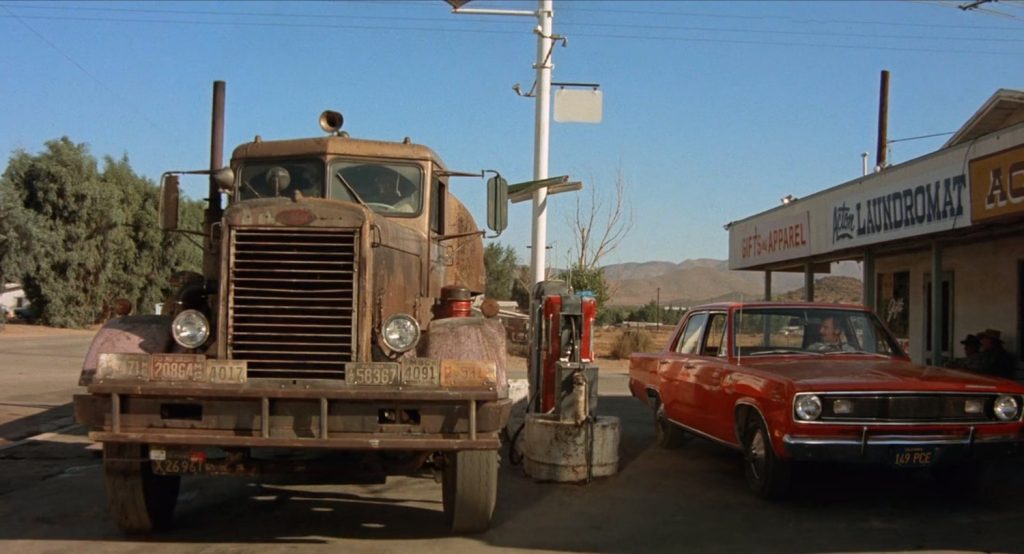 Always Trust Your Gas Station Attendant
Always Trust Your Gas Station Attendant
Thomas Parker is a native Southern Californian and a lifelong science fiction, fantasy, and mystery fan. When not corrupting the next generation as a fourth grade teacher, he collects Roger Corman movies, Silver Age comic books, Ace doubles, and despairing looks from his wife. His last article for us was A Metaphysical Nightmare: Brian Moore’s Cold Heaven

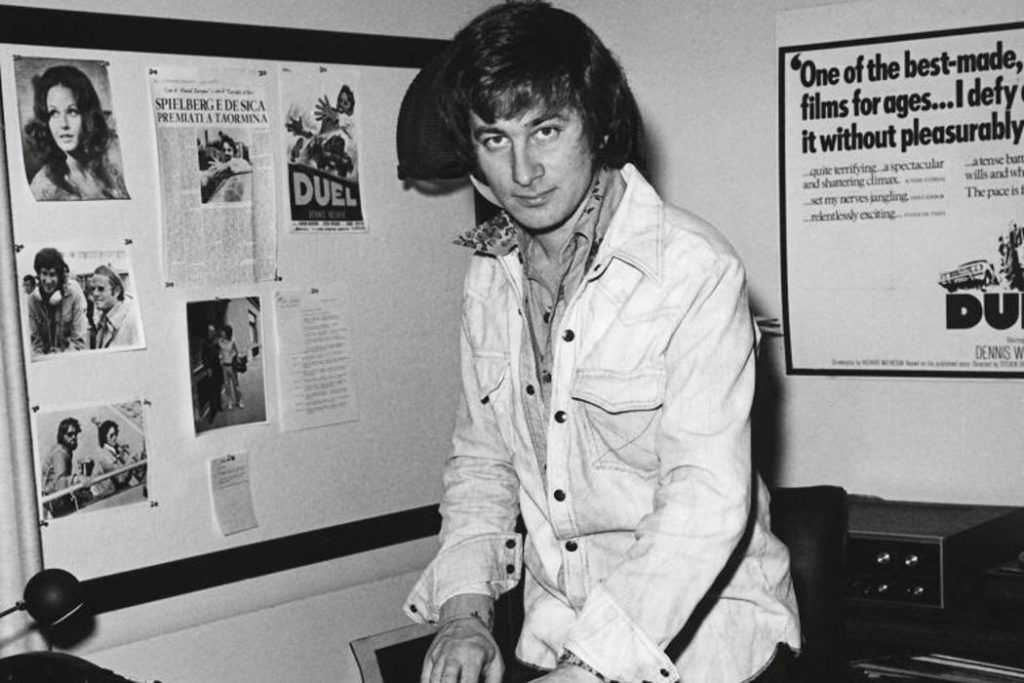

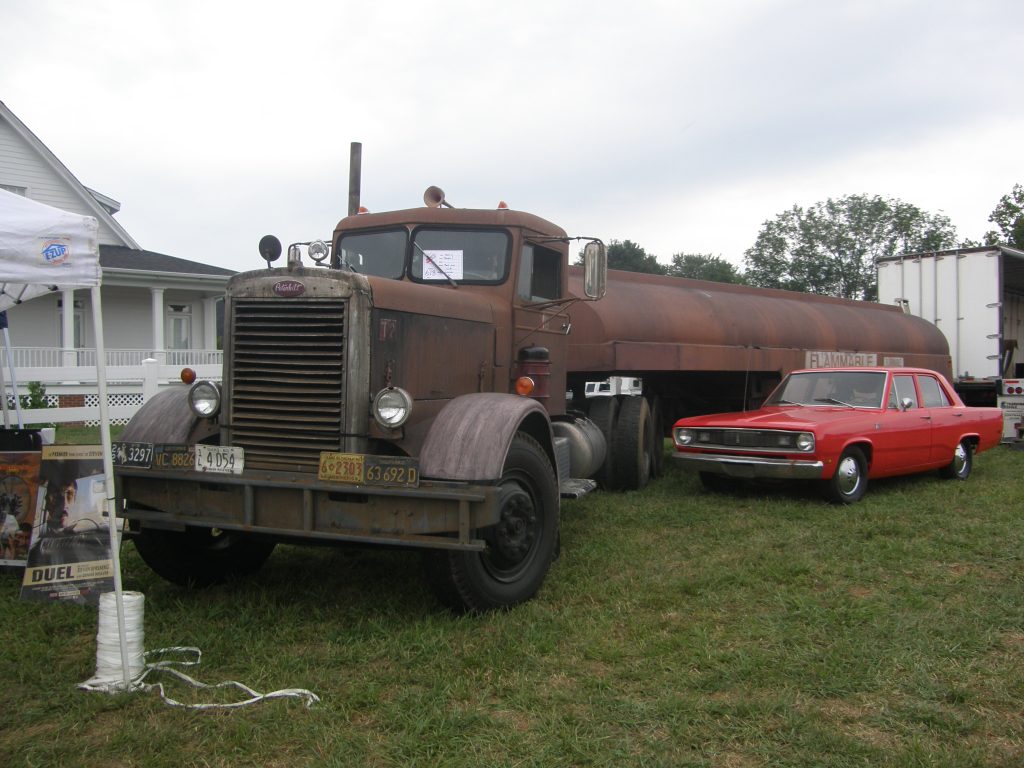
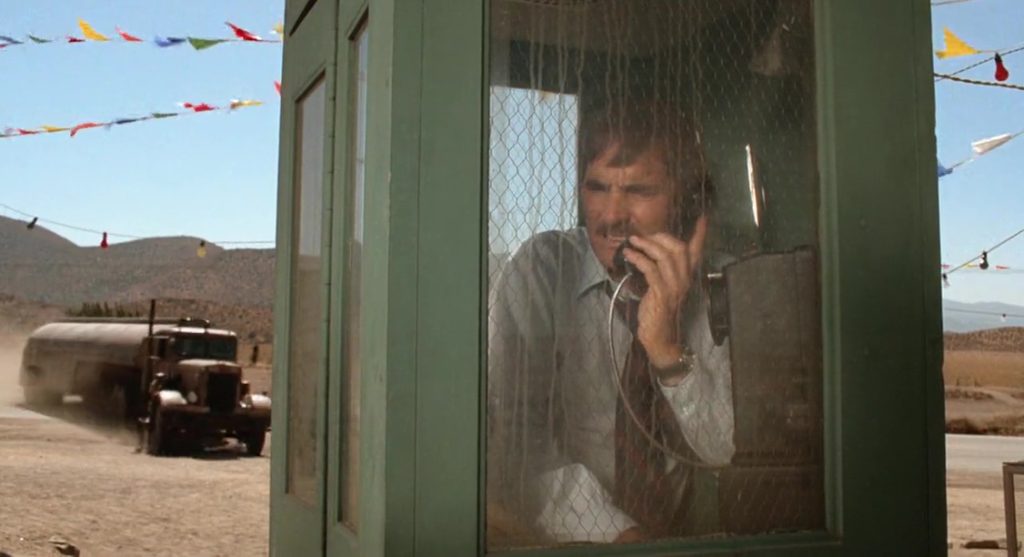
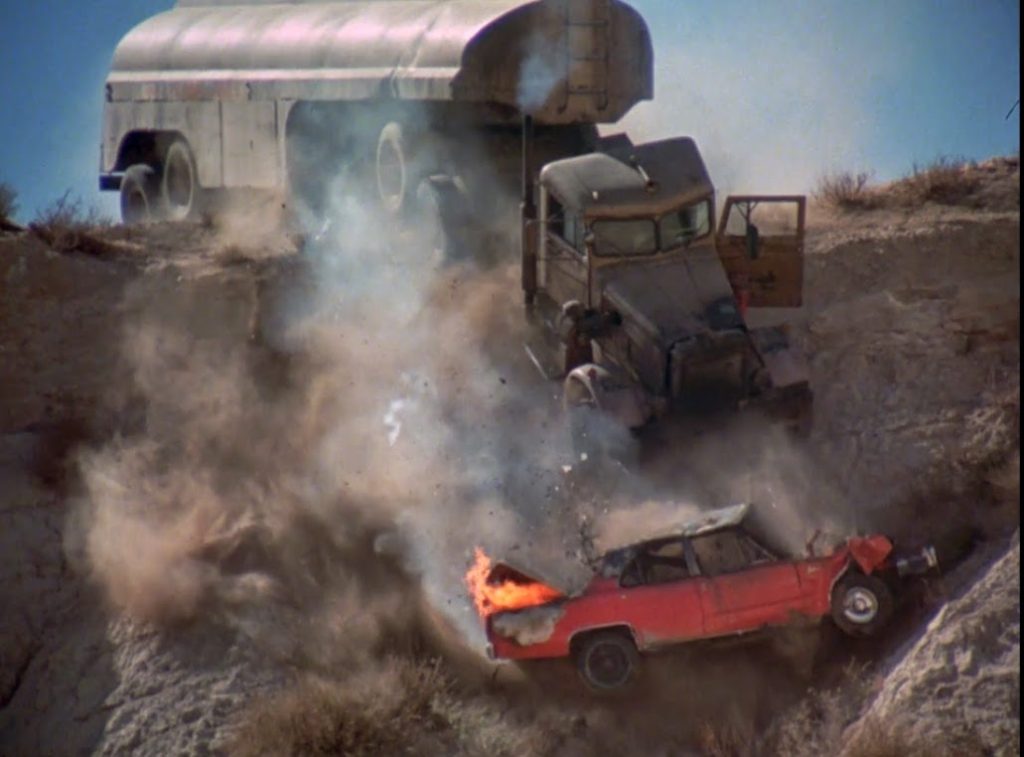
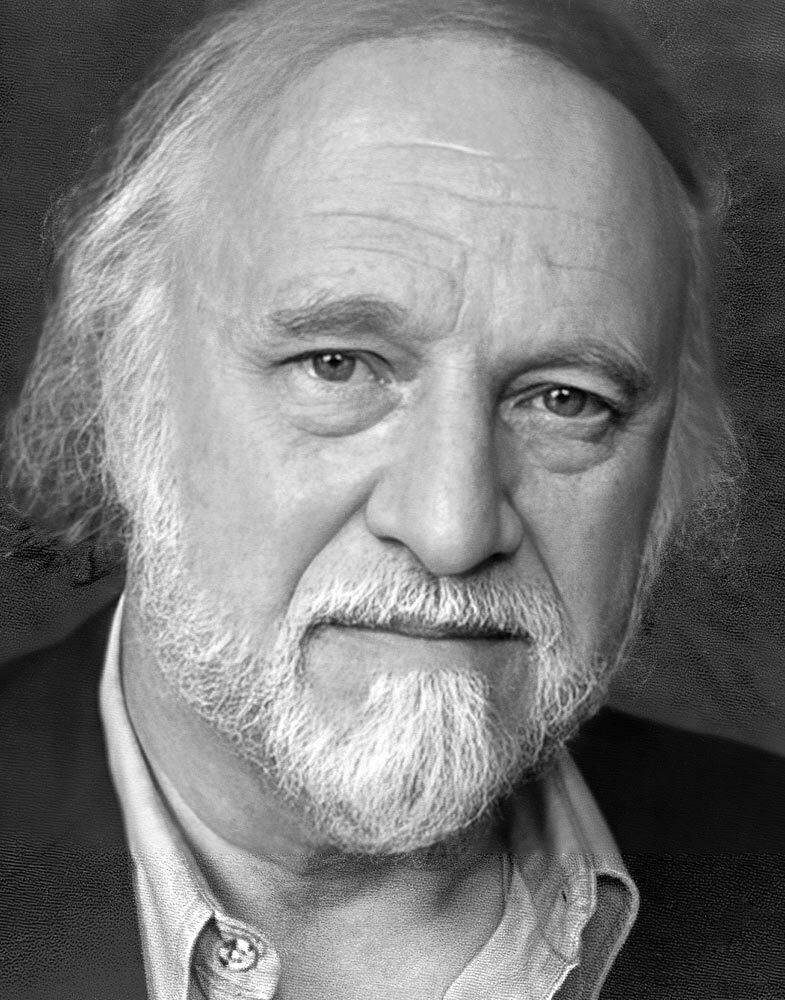
If you mention the great Dale Van Sickel doubling for Dennis Weaver, you have to mention Carey Loftin, who masterfully maneuvered that tanker truck over the highways in pursuit of the red Valiant.
Indeed yes, but don’t forget – he was the Bad Guy.
This is great. Duel was a movie I’d read about for years as a little kid. When I finally saw it in high school, it sure as heck lived up to the hype and blew me away. Definitely time for a rewatch.
Well, hats off to David Mann for prevailing. Personally, I’m thinking the third time’s the charm where the semi will actually manage to kill me, so I’ve retreated from where they tend to be. The byways are more fun to drive than the highways, anyway.
It was an artifact of the time, and there is nothing wrong with living her life that way, if she chooses to, but… Please, please, pleeeeeeeeease tell me that Mrs. Mann wallopped handsy Henderson upside the head herself. Or did she suffer and wait for Mr. Mann to do something about it?
It’s strongly implied that it was the retiring David Mann who suffered most from the incident – at the hands of Mrs. Mann.
Oh dear. So not as much broken trust based on gender roles, but potential spousal abuse. I wonder how that turned out after the end of the movie.
Good movies often have a lot of potential sequelae. That’s probably part of why so many sequels get made.
I’ve seen some people criticize the ending, but I think it’s perfect, posing – and leaving open – the question, where can Mann go, what can he do, (even, what will he be) after such an experience?
“None of them stand higher than Duel”.
Well, you mentioned the one that I would place higher, The Night Stalker (another Richard Matheson gem), but if we had to sit down and watch both movies together to settle the argument, well, I am pretty sure neither of us would be considered a loser. .
The Night Stalker is certainly one of the handful of MOWs at the top of the pile. As for whether it’s better than Duel, as John Wayne said in Rio Bravo, “It’d be close. I’d hate to have to live on the difference.”